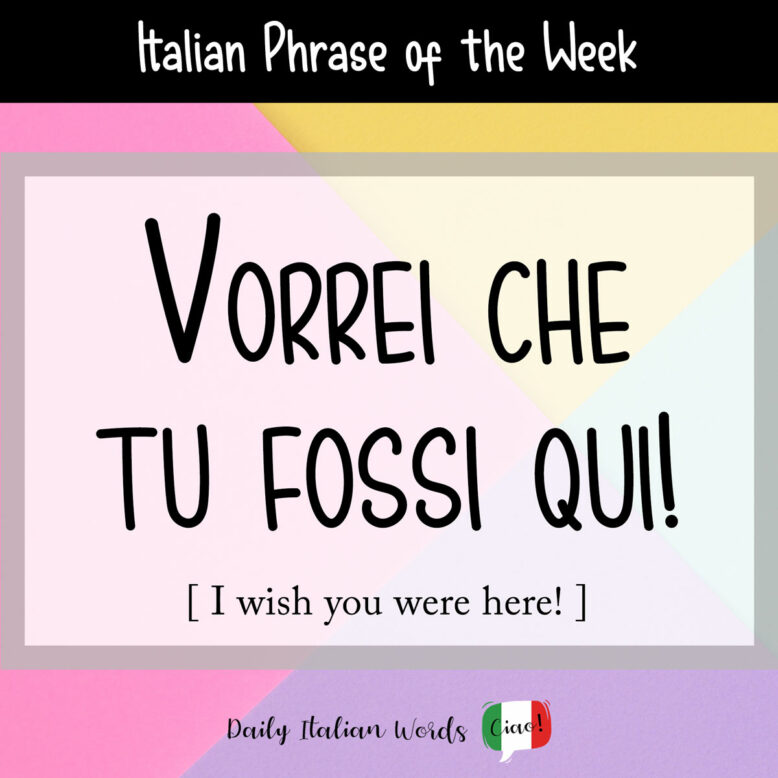If you suddenly find yourself longing to see someone, such as a friend or relative who lives in Italy, one way of expressing how much you miss them is with the phrase Vorrei che tu fossi qui which is the Italian equivalent of I wish you were here.
Vorrei che tu fossi qui!
I wish you were here!

Let’s break this phrase down into its component parts:
- Vorrei >> The first-person singular conditional tense of volere (to want). It can also translate as I would like. Vorrei tends to be the best translation for I wish when you want something to be done or to happen, especially if it cannot or probably will not happen. For example:
I wish I could drive. = Vorrei poter guidare.
I wish it would stop raining. = Vorrei che smettesse di piovere.
I wish I had studied more. = Vorrei aver studiato di più.
- che >> A conjunction meaning that.
- tu >> The informal second person subject pronoun you.
Note that it is possible to leave the subject pronoun tu out of the sentence if it is very clear from the context who you are talking about:
Vorrei che fossi qui. = I wish (you) were here.
- fossi >> As mentioned above, this is the second person singular imperfect subjunctive of essere (to be), the equivalent of were in English.
- qui >> One way of translating here in Italian. (The other is qua.) Find out the difference between qui and qua here!

Two other verbs that translate as to wish are augurare and desiderare. In this particular context however, neither really fits because…
Augurare means to wish someone [something good]. For example:
- Ti auguro [una bella giornata]. = I wish you [a nice day].
- Vi auguriamo [ogni successo]. = We wish all of you [every success].
Desiderare means to wish in the sense of a strong desire or craving, much like the English verb to desire. It is a bit too strong to work as a replacement for vorrei in this case.
- Ho sempre desiderato una vita migliore. = I’ve always wished for a better life.
Finally, when to wish is used in a magical sense, as in wishing on a star or making a wish by blowing out birthday candles, it translates as esprimere un desiderio. (lit. to express a wish)
Heather Broster is a graduate with honours in linguistics from the University of Western Ontario. She is an aspiring polyglot, proficient in English and Italian, as well as Japanese, Welsh, and French to varying degrees of fluency. Originally from Toronto, Heather has resided in various countries, notably Italy for a period of six years. Her primary focus lies in the fields of language acquisition, education, and bilingual instruction.


